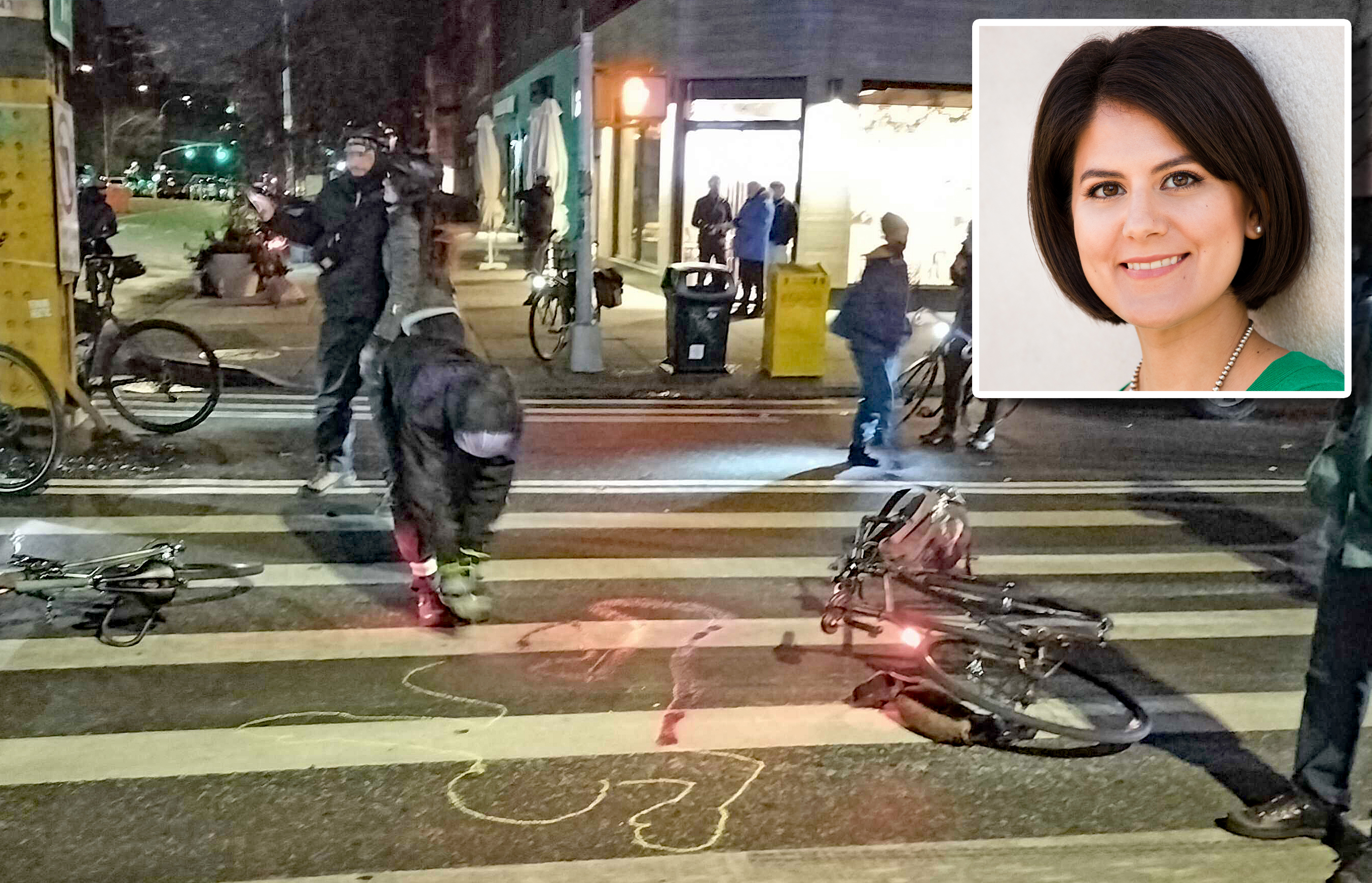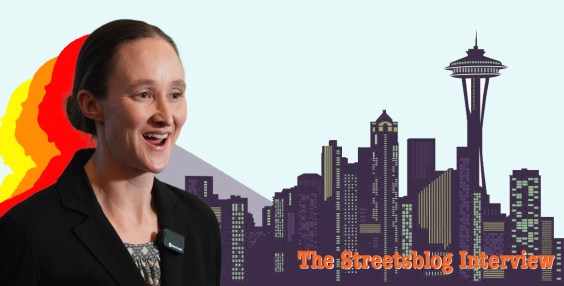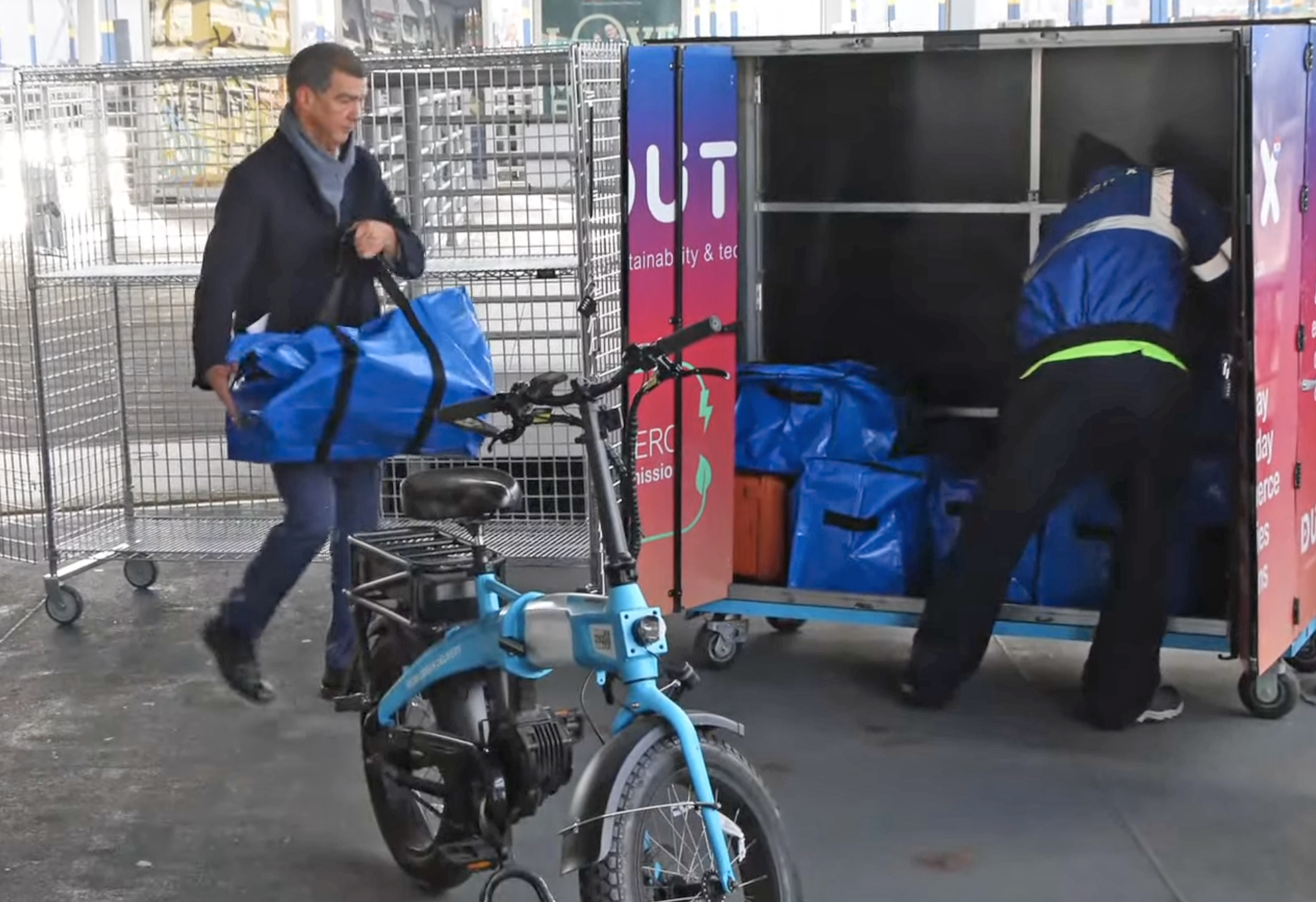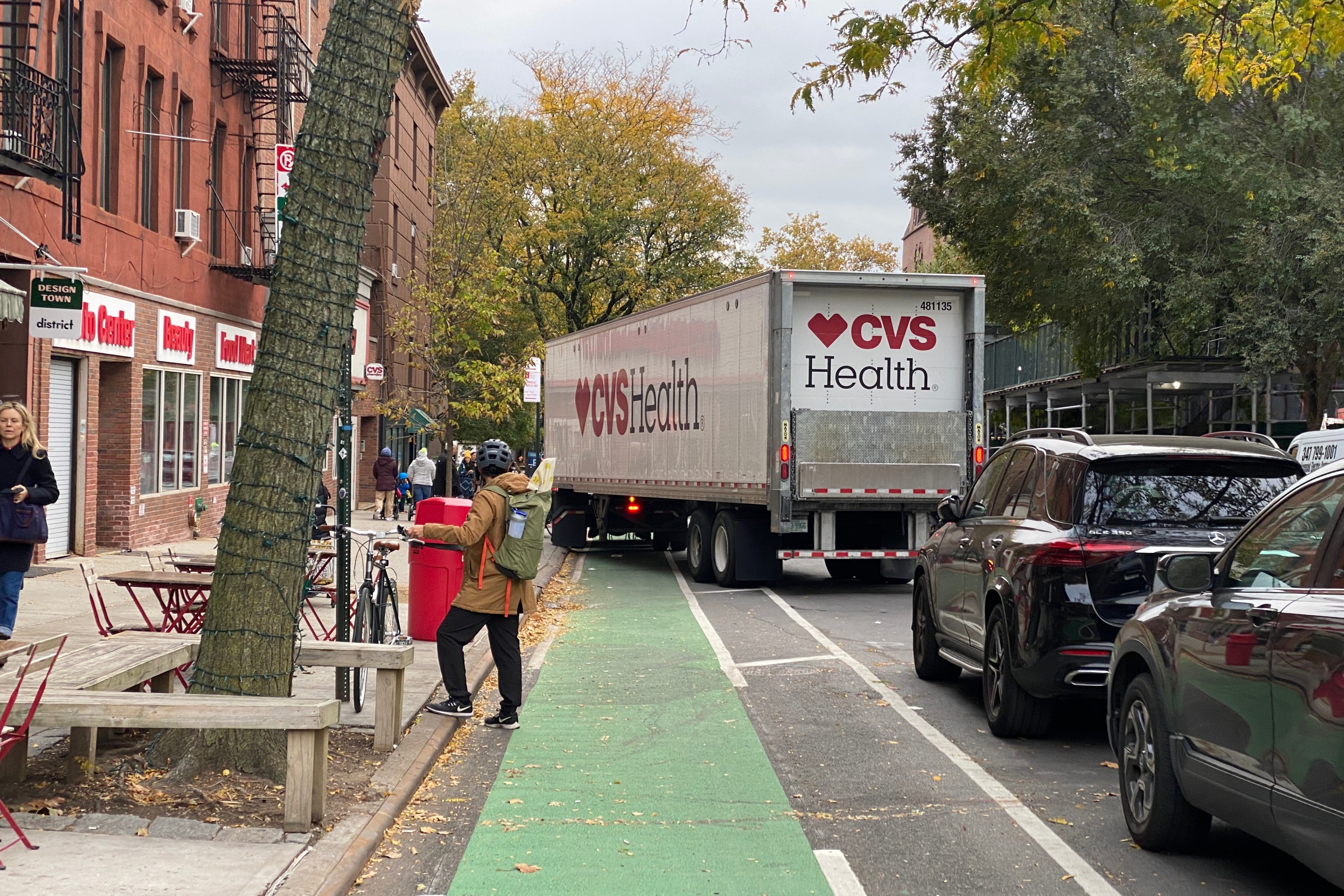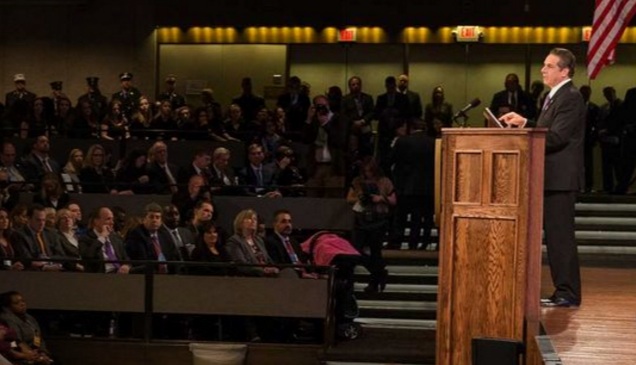
Andrew Cuomo ran down his list of big transportation projects in the State of the State Address yesterday, and despite the billions it will take to build everything on his agenda, the governor didn't say anything about how he'll raise the money to pay for it. He did work in a line about toll cuts for Thruway drivers, though.
In the speech, Cuomo marveled at New York's history of building "the longest bridges, the deepest tunnels" and set his sights on eclipsing the legacy of Governor Nelson Rockefeller. Under Rockefeller in the 1960s, New York built a staggering amount of highways, but his most important contribution to the state's transportation system had less to do with physical infrastructure and more with the structure of institutions.
By forming the MTA in 1968, Rockefeller wrested control of the Triborough Bridge and Tunnel Authority from Robert Moses and funneled its surplus toll revenues to the New York region's transit system instead of the master builder's road projects. Who knows what a busted mess New York City would be today if Moses had retained power much longer.
When it comes to transportation, Cuomo's version of thinking big is all about monumental objects, not major institutional shifts that can deliver long-term prosperity. If he was secretly waiting until the last conceivable moment to come out for a transformational policy like the Move NY toll reform plan, the State of the State was pretty much it. No such luck -- it looks like New York will be mired in traffic, thanks to its free bridges, at least until there's a new governor.
Meanwhile, Cuomo's commitments to road spending, the MTA capital program, and mega-projects of varying merit (LIRR third track beats the pants off the Airtrain to LaGuardia) still run into the tens of billions of dollars. Even if some of these projects end up just not happening (remember the Aqueduct convention center that Cuomo plugged a couple of years ago?), New Yorkers should be worried about who's going to pick up the tab for it all. Especially the road projects, because if Cuomo has shown us anything about how he likes to pay for infrastructure, it's that he's averse to asking motorists to cover the cost of the highways and bridges they use.
New York has some bank settlement money at its disposal, but those one-shot windfalls can only go so far. There's no way to fund all this stuff without foisting costs onto New Yorkers who can least afford it and/or pushing the consequences into the future. Here are three shifty ways of paying for transportation infrastructure to keep an eye out for:
Straight-up subsidies. We're already seeing this with the Thruway toll cuts, which will be paid for by general fund revenue. Where is the state getting more general fund revenue? Well, here are a few ways Cuomo wants to grab from NYC's budget to pay for his own: cutting the state's contributions to CUNY and Medicaid in the city. Expect more of the costs of driving infrastructure to be shifted elsewhere.
Private finance. The state is running up against the limits of its statutory ability to borrow. Tammy Gamerman of the Citizens Budget Commission told Politico it looks like the state will have to turn to private finance to pay for Cuomo's wish list. Private finance isn't any cheaper than public borrowing, though -- it's just more convoluted.
A recent highway proposal slated for farmland south of Chicago, for instance, would have been privately built and operated, with toll revenue paying back the contractor. But the state was on the hook if toll revenues didn't keep pace with the repayment schedule -- and the projected shortfall turned out to be huge. (The project was effectively killed when its chief sponsor, Illinois Governor Pat Quinn, lost his 2014 bid for reelection.)
Letting a future governor and future taxpayers worry about it. Last October, Cuomo reached an agreement with Mayor de Blasio to pay for the state's $8.3 billion commitment to the MTA capital program without borrowing backed by transit fares. The most likely scenario is that the state will assume responsibility for $8.3 billion in bonds instead. The bonds will be paid off over 30 years, but Cuomo and de Blasio will be in office for a fraction of that period. Experience suggests it's only a matter of time before straphangers pony up and not the state.

